Heavy Hitters is almost upon us, and with it 5 new heroes (and Rhinar) to take into the arena. But how do we know what’s good enough to battle with in the new Road to Nationals season? That’s where the long hours deep into the night come in, frantically trying to make sure that you’ve got the right list - and the right hero - for the fray. Where do we even want to start?
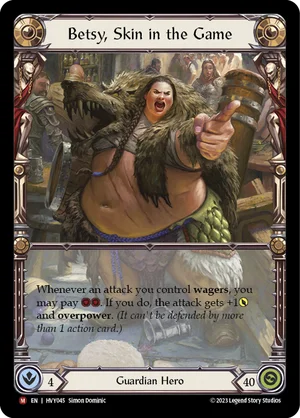
Problem 1: Where Do We Start?
When trying a new hero, two key principles are important: why are we playing this over an existing deck, and what specifically are we trying to determine from our testing?
For any new list, a good starting point is usually to focus on the key thing that’s different about them. In some cases, it’ll quickly tell you that it’s not the right place to focus, or maybe it becomes a good starting point for a different idea.
As an example, let’s start with Betsy. Currently, I think she’s going to struggle to find a place in the metagame, mostly because of how powerful Bravo’s specializations are. But if she does have something to offer, it’ll be more because of how good the wager cards turn out to play; adding an additional power to her attacks when compared to Bravo is definitely an upside to look out for. So with this list, I’m trying out almost all of the wager cards.
There’s potential that a final Betsy list looks more like a standard Bravo list with a few of the more powerful wager cards included, but the best way to find that out is to see what we are most happy to draw in the matches.
When trying a new hero, two key principles are important: why are we playing this over an existing deck, and what specifically are we trying to determine from our testing?
I’ve deliberately left some room in the inventory to add some cards if it feels like there are gaps after the games, and I’m not going to worry about things such as Nullrunes at this stage - although that will be an important consideration for the tournament, if we aren’t able to get in some results at the base level, we won't have to worry about unusual matchups.
Answer: Start with the obvious, and iterate from there
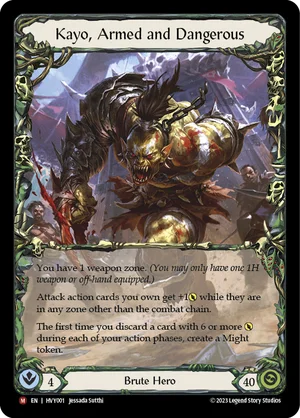
Problem Two: We can’t try a new list against every hero
Flesh and Blood has a lot of different decks that you can play in Classic Constructed - with the release of Heavy Hitters, they’re up to 25 heroes, which doesn’t even get into the variation within the archetypes. If you set out with your new deck to play just one game against each hero, you’re looking at almost 16 hours on just one rep each!
We need to narrow down our list - and for that, I use The Gauntlet. A Gauntlet is a list of the decks built to test against, to better understand how your new list performs. There’s no perfect way to build a Gauntlet, as it’ll depend on a lot of factors: your available time, your confidence in various matchups, and where the metagame currently is. If there’s not been a single tournament in this new environment, you’re going to want to start with evaluating against the previous metagame.
Currently, my first draft of a Heavy Hitters Gauntlet is going to include:
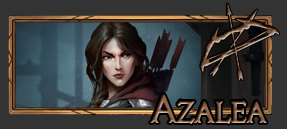
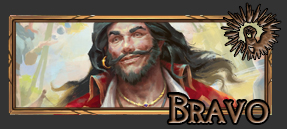
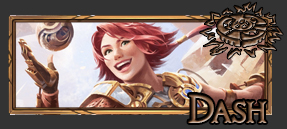
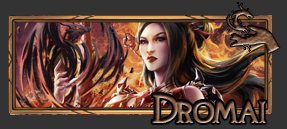
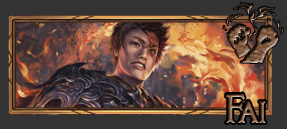
I've found that a good starting point is 5 of what you consider to be the top and most popular decks. Personal opinion will be a big factor here as to what you think will be popular and what will be powerful, but try to back it up with some data as to what was popular and performed well at the last big tournament. Personally, I actually think Katsu has got some potential in the new metagame, but I’ll be able to evaluate a lot of the same conclusions against Fai, so this can help give me my starting point and save some time.
What you’re trying to do here is set your bearings. If the new list you’re trying feels like it’s struggling to beat any of the best decks, then maybe it’s worth trying something else. But if you’re at least holding your own to start with, then maybe with refinement and practice we can get somewhere.
If your new hero survives the Gauntlet, the next step is to start checking against a wider field. How does the deck feel against Uzuri? How about the Emperor Dromai variant instead of the Royal version?
Answer: See if your deck can stand up against the best, and then get to the rest
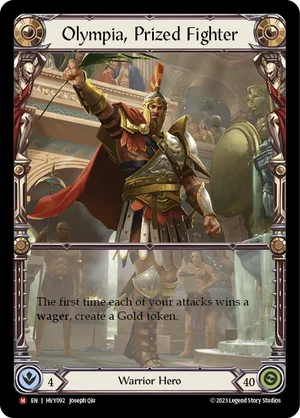
Problem Three: What Should I Be Doing Differently In A Test Game?
Thankfully, this one is easy. Your goal in testing is never to just win all the matches; it’s to try to gain more understanding of how a matchup plays out, what cards are good, and what cards aren’t needed. If you win all the matches, but you’ve noticed your opponent is making a crucial mistake that you don’t tell them about, then you might not make an adjustment for the future that you'll need when someone is playing their deck in a more experienced way.
Also, if you can explain why you did a certain play, or give your opinions on the right play to make in a difficult spot, that’s going to help both of you to get better.
A while back, I was testing against a friend, and I lost a close one as Uzuri. I asked if they thought I could have done anything differently to better win the match, as it felt like there had been a couple of interesting decision points. They told me that, from their perspective, I’d played it right, apart from one turn where they thought I did a truly awful block.
I’d also recommend trying to play both sides of the matchups if you can, just to both share the load if there’s a popular deck you or your testing partners don’t like playing - but also because it’ll really help your understanding of the matchups.
Answer: Talk through your lines, and be willing to try other decks
This isn't meant to be a comprehensive guide - there are plenty of other details to get into. You need to know when to let a deck go. You need to know how to work best with other people. You need to know how to balance the time you have… but that's a story for another day.
The basics should apply here to give you the starting point, and then the rest is up to you.
Try the obvious version of a new deck, and see where it goes.
Start by focusing on playing against the best decks.
Talk through your matches, and work with your team.
A loss is a humbling experience; you’re going to think about where you’ve made mistakes, what could have been done differently, how close you were to winning and it’s going to feel bad. But let's talk about what you can take away from them.
by: Kiki Labad
Frank Hung is an advocate for constructing your own deck, especially in the early stages of your FaB journey. But where do you begin?
by: Frank Hung
Make the most of your playtesting by going into it with a plan and knowing what questions you'd like to answer.
by: Roger Bodee
Oftentimes, where you playtest matters just as much as how you playtest. We'll talk about both today.








